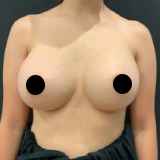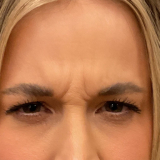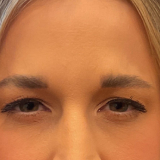Capsular Contracture
Consultations offered at our three convenient locations in Austin, TX, San Antonio, TX and Westlake Hills, TX

The capsular is the scar tissue that forms around a breast implant. Anytime a body has a foreign object in it, it forms tissue around it. Capsular contracture in Austin is when that tissue becomes more firm or hard, changing how the breast looks or feels.
Many people get confused about this bodily process. Forming some capsules is normal and beneficial because it helps to hold an implant in place. When that capsule becomes abnormally hard, that is when it can become a problem. If you are having issues with your breast implants, call our team to discuss your options.
Treatment
When a patient in Austin is experiencing capsular contracture, it is important to reach out to our office as soon as possible. Our number one priority is ensuring patient safety and happiness.
It can be challenging for people to know whether their issue is capsular contracture, an implant malposition, or something else. When it is early in the process, some medications may help capsular contracture before surgery is necessary. There are four grades of capsular contracture. With Baker Grade I, the breast still looks normal or appears normal and feels soft. Grade II feels more firm, and Grade III shows changes in the shape of the breast. Grade IV results in firm and painful breasts.
When a person has a Baker Grade I or II, oftentimes we do not need to treat this, and will monitor due to some capsule being normal. When a capsule shifts the implant or becomes painful, our team must treat it. Most commonly, patients undergo surgery to remove the capsule and replace the breast implant. Depending on the severity and specific situation, our team may implement a structural support internal bra mesh that can decrease the risk of future capsular contractures.
Prevention
There is no one way to prevent capsular contracture. Capsular contracture is unique because it can happen shortly after surgery or years later. Our Austin practice takes several steps to minimize the risk of capsular contracture. First, we often prescribe antibiotics at the time of surgery. We wash the breast pocket out with an antibiotic solution before placing the implants. The ducts in the breast can sometimes harbor bacteria that can reach the breast implant. Our surgeons also use a special medical-grade Keller Funnel or another medical-grade funnel to slide the implant into the pocket seamlessly, decreasing the risk of capsular contracture as well.
Postoperatively, recovery is crucial to preventing capsular contracture. Doing too much after surgery and developing bleeding from tissues shifting around increases the risk of capsular contracture. Our team works to help patients understand the importance of the recovery process because that is one of the only preventative measures a patient can control.
Contact
Chronic infection is the most significant issue that can occur after capsular contracture. There is no specific way to predict who will and will not experience capsular contracture. People’s scars heal differently than others, but it is hard to know how they will heal before surgery. This makes controlling everything at the time of surgery crucial to minimizing the risk of capsular contracture. After surgery, our team monitors every patient and addresses any issues quickly and efficiently. Reach out to our office if you think you are experiencing capsular contracture in Austin.





